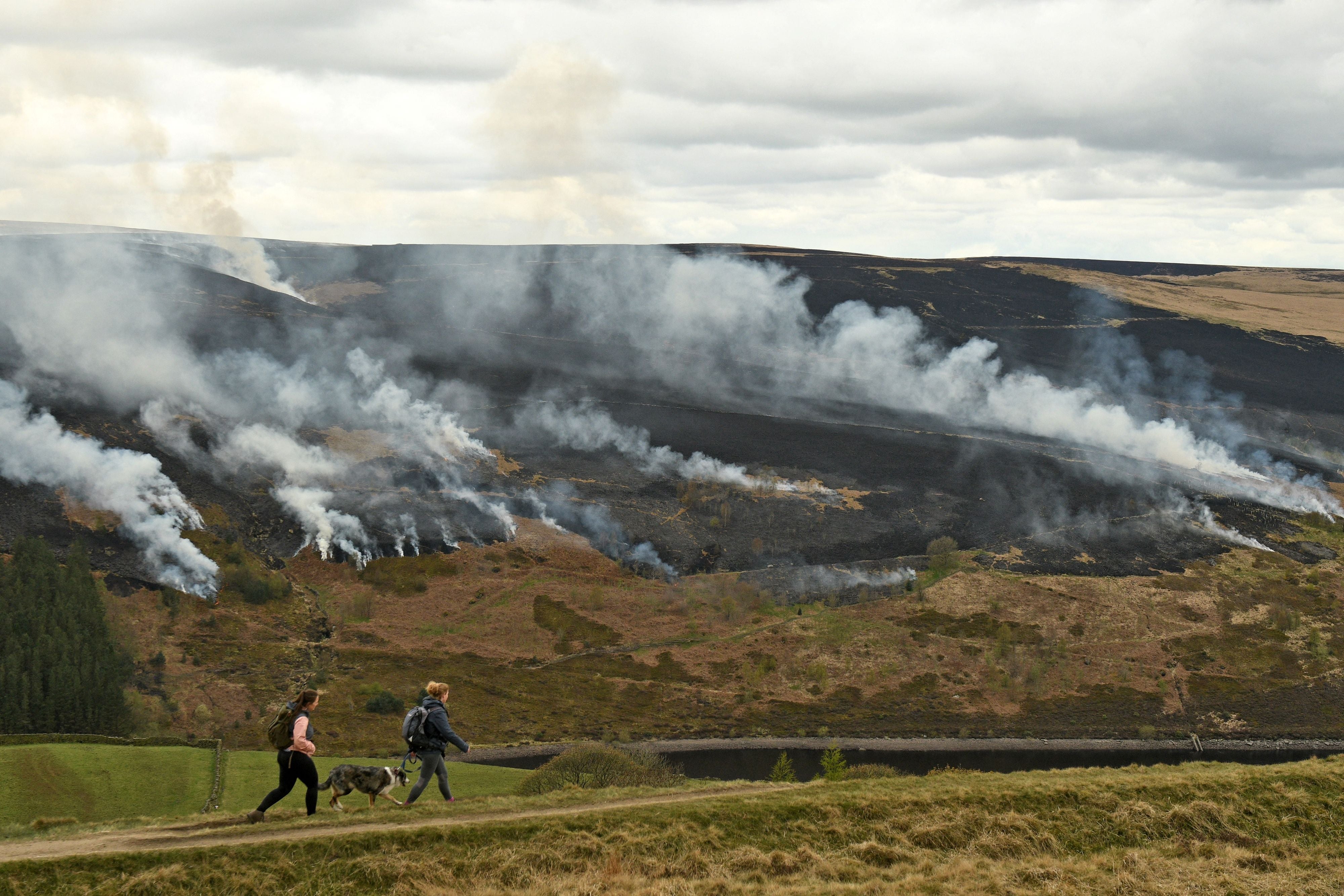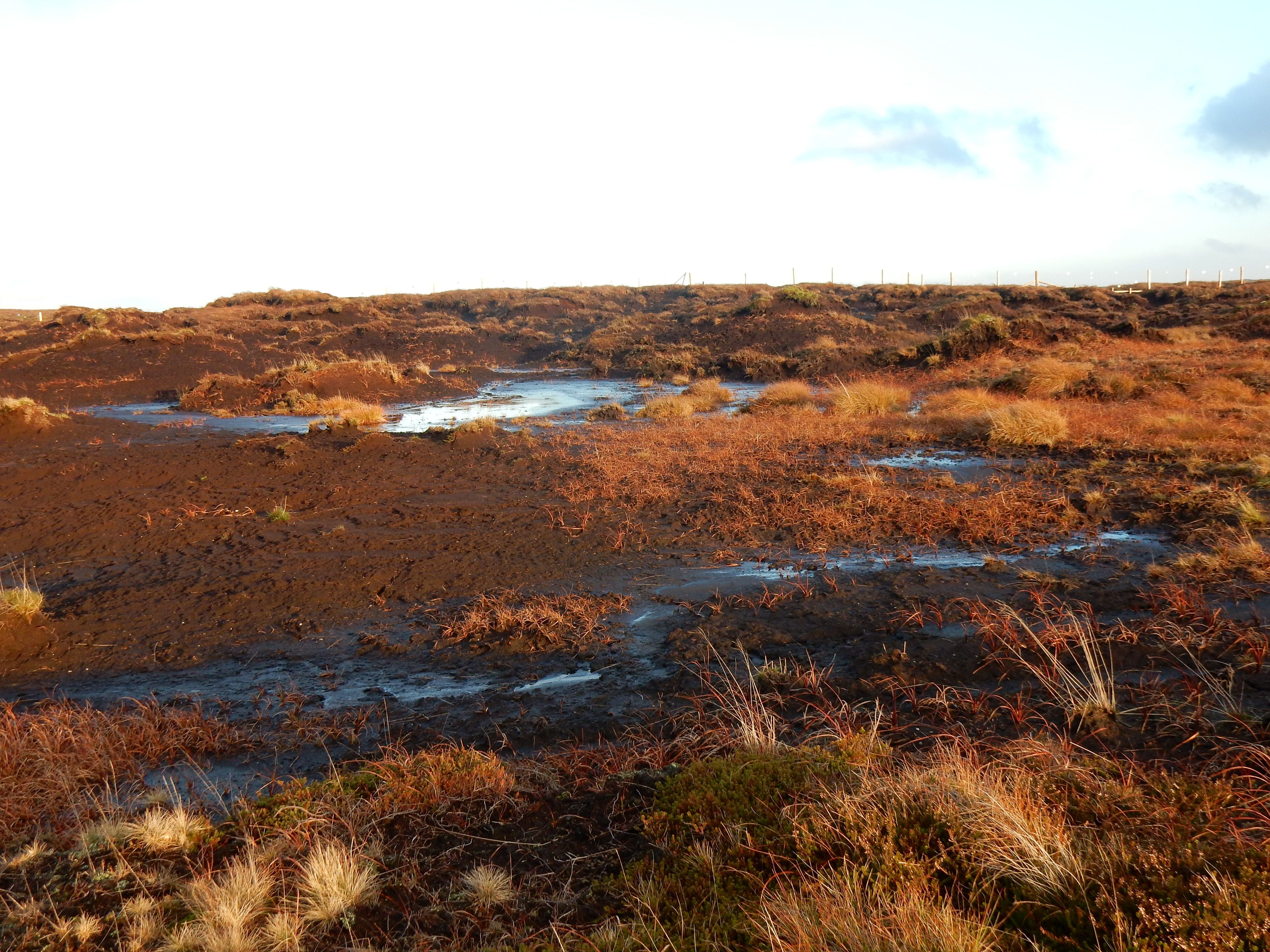‘Bizarre loopholes’ in peatland burning ban risk embarrassing UK ahead of Cop26, campaigners say
Exclusive: Environmental groups call for tougher rules on peatland burning as UK sets out vision ahead of the Glasgow climate conference

“Bizarre loopholes” in the UK’s ban on burning peatlands could risk embarrassing the government as it prepares for Cop26, a major climate conference being held in Glasgow in around six months’ time, campaigners have warned.
Peatlands have been described as “superheroes of the natural world” for their ability to store vast amounts of carbon and support a diversity of wildlife. These water-logged environments cover just 10 per cent of the country’s surface but store around three billion tonnes of carbon.
However, centuries of burning, overgrazing and over-draining have left the country’s peatlands in a poor state, causing them to release more CO2 into the atmosphere than they are able to absorb. Estimates suggest that the UK’s degraded peatlands currently account for around 5 per cent of the country’s total emissions.
In a bid to address damage to bogs, the government this year announced a ban on peatland burning in certain protected sites.
However, campaign groups say that exemptions to the ban mean that it only applies to 9 per cent of England’s peatlands – and have urged the government to introduce tougher measures ahead of its role as hosts of Cop26.
Their warning comes as Alok Sharma, the UK minister appointed Cop26 president-designate, is preparing to give a speech on Friday morning to set out the country’s priorities in six months leading up to the conference.
Craig Bennett, chief executive of the Wildlife Trusts, told The Independent: “It’s crazy that the government’s prohibition on burning upland peat made earlier in the year had these bizarre loopholes.
“We’re hosting Cop26 in Glasgow and just a short drive away in northern England, you’ll be able to see peatlands on fire. It just doesn’t stack up and will undermine the kind of leadership that the UK is wanting to display.
“We need to see a real determination from the government to see a proper end to peat burning.”
Peat burning is still commonplace in areas used for grouse shoots, with proponents claiming it can help to reduce wildfire risk and promote new plant growth.

The new ban only applies to areas of deep peat – with soils more than 40cm in depth – that sit within specially protected areas. And, despite the rules, the environment secretary retains the power to issue a licence for peatland burning in protected sites if it is deemed that it could help to prevent wildfires.
However, Emma Goodyer, leader of the International Union for the Conservation of Nature’s (IUCN) UK Peatland Programme, said that restoring bogs to their natural, water-logged state would be a “more sustainable solution” for controlling wildfire risk.
“Burning on peatland leads to drier vegetation. This is associated with changes that can result in significant adverse impact on peatland biodiversity, carbon emissions, drinking water quality and flood management,” she said.
“The most effective long-term sustainable solution for addressing wildfire risk on peatlands is to return the sites to fully functioning bog habitat by removing those factors that can cause degradation.”
The government is due to imminently set out its England Peat Strategy – a plan for how it intends to restore and protect the country’s carbon-rich peatlands.
The groups said the new strategy must address the exemptions in its current peatland burning ban.
Dr Richard Benwell, chief executive of Wildlife and Countryside Link, a coalition of 57 environmental organisations, said: “The government has little wriggle room if it wants to achieve net-zero emissions and play its part in averting climate change.
“That leaves no place for the damaging and unnecessary emissions associated with heather burning on peatlands, which squanders ancient carbon stored as peat, carbon stored in woody vegetation, and damages biodiversity. The government must close the loopholes in its burning regulations, which risk being a ban only in name.”
Dr Pat Thompson, a senior policy officer at the RSPB, added: “We urge the government to make good on their commitment to protect and restore carbon stocks and peatland habitats and trust that the publication of the long-awaited action plan for England’s peatlands will set out a clear pathway to breathe new life into our peatlands.”
The Independent approached a government spokesperson for comment.
Join our commenting forum
Join thought-provoking conversations, follow other Independent readers and see their replies
Comments
Bookmark popover
Removed from bookmarks